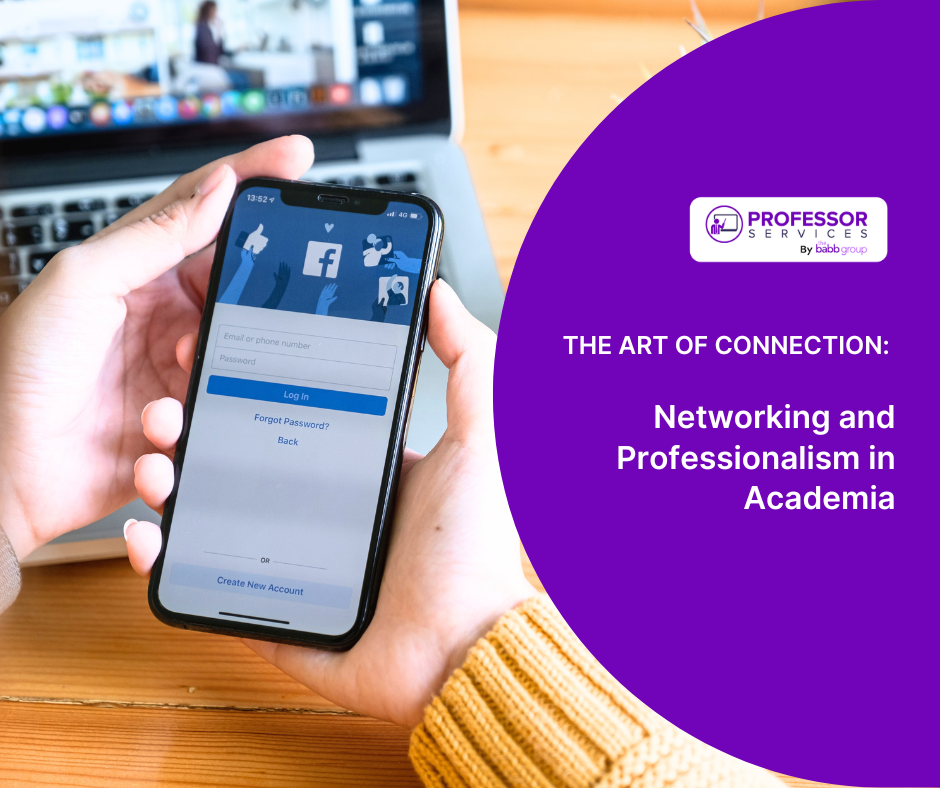Finding your next teaching opportunity is more than just having an impressive CV and a list of publications. It’s about connecting with people, presenting yourself professionally, and demonstrating the values that make you an asset to any institution. Here’s why these elements are crucial in your academic job search.
Networking: Your Academic Lifeline
Networking is often perceived as a buzzword. It’s not just about exchanging business cards or adding contacts on LinkedIn; it’s about forming meaningful relationships with peers, mentors, and industry leaders. We talked with Julie Shore, the founder of Career Development Advisors, about how networking is about building relationships during everyday interactions. Shore suggests integrating regular conversations with people in your field and doing informational interviews. She says this informal networking keeps the wheels turning when you’re applying for jobs and keeps you on top of mind for people when they are hiring.
Shore also suggests using LinkedIn, as that’s where recruiters are. She says, “93 to 96% of recruiters are on LinkedIn. I know myself when I do retain recruiting work…We are data mining and experimenting with LinkedIn. I always tell job seekers that’s a networking tool that works for you while you’re sleeping.”
Watch the podcast with Julie Shore.
These connections can lead to collaborations, research opportunities, and, most importantly, insider information on job openings.
Other Tips for Effective Networking:
- Tap Your Network: Let friends, family, and colleagues know you seek new opportunities.
- Join Professional Associations: These groups can give you access to exclusive job boards and networking events.
- Stay Active Online: Engage with your academic community on social media and professional platforms.
Professionalism
Professionalism goes beyond dressing smartly for an interview. It’s about how you conduct yourself in every interaction, including email, phone, social media, or person. It’s about being punctual, prepared, and respectful. Shore says communication is a vital part of professionalism. “There are very few professions where you don’t have to have interpersonal skills and talk to people.” Remember, every touchpoint is a chance to make an impression. Vice President of Academics and Professor Services Dorothy Miraglia, PhD, reminds clients that every social interaction counts, including negative complaints you share in groups about work, job search, and schools. She encourages people to keep their posts professional and positive and avoid complaining online, as recruiters and hiring managers may be in groups and find the comments.
Watch the podcast with Dorothy Miraglia, Ph.D.
Keys to Professionalism:
- Communication: Clear, concise, and grammatically correct communication is essential.
- Work Ethic: Be on time and demonstrate that you are a reliable and contributing member of teams.
- Follow-up: Send thank-you emails after interviews and meetings. It shows appreciation and keeps you top of mind.
Demonstrating Your Values
Shore suggests you understand your values and value proposition before applying to jobs. What do you stand for? What’s your teaching ethos? What value do you deliver to teams? Institutions aren’t just hiring your expertise; they’re investing in your vision and values. Make sure this shines through in every part of your application process. Shore says your professional values come through in everything you do.
Shore says, “I coach everyone who I am working with in job search mode. You are always on because you never know. You could be in line at the grocery store. You know, it could be a text. It could be a phone call.” She emphasizes that interpersonal skills, writing skills, and communication skills, in addition to demonstrating conscientiousness and a willingness to learn, set candidates apart.
How to Demonstrate Your Values:
- Personal Statement: Use this to articulate your educational philosophy and how it aligns with the institution’s mission.
- Volunteer: Shore recommends volunteering as good for your soul and for networking. Be sure to showcase your contributions on your resume or CV.
- Research Interests: Show how your work contributes to the broader academic community and society.
While your academic achievements are the foundation of your career, the relationships you build, the professionalism you exhibit, and the values you embody will open doors to new opportunities. So, network with purpose, present yourself with poise, and let your values guide you to your next excellent teaching role.
Angela
Latest posts by Angela (see all)
- The Art of Connection: Networking and Professionalism in Academia - July 25, 2024
- Got the Teaching Job? Now, You Need To Attend the Faculty Training - July 1, 2024
- Higher Education Trends: Insights from Our COO, Sheila Fry - June 20, 2024
